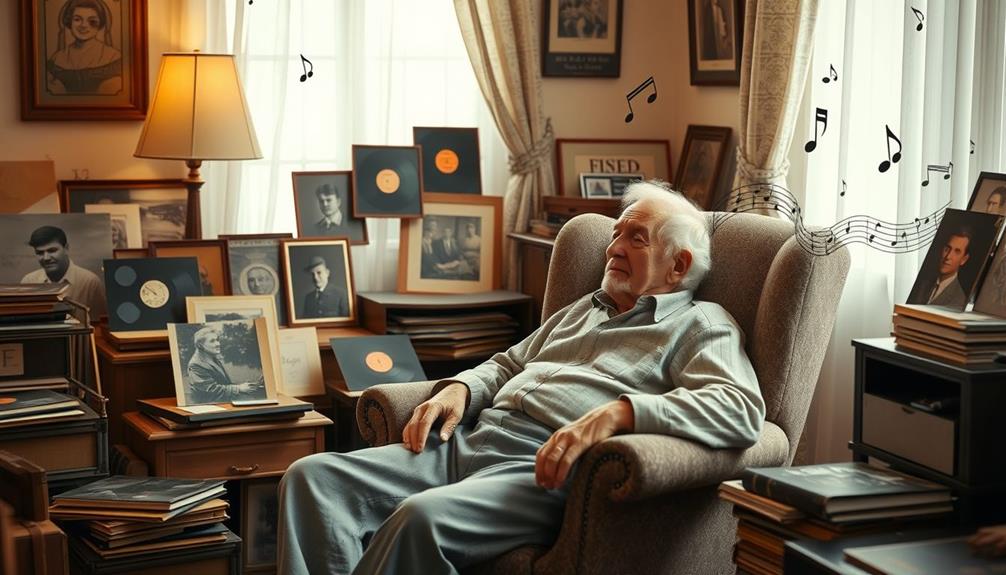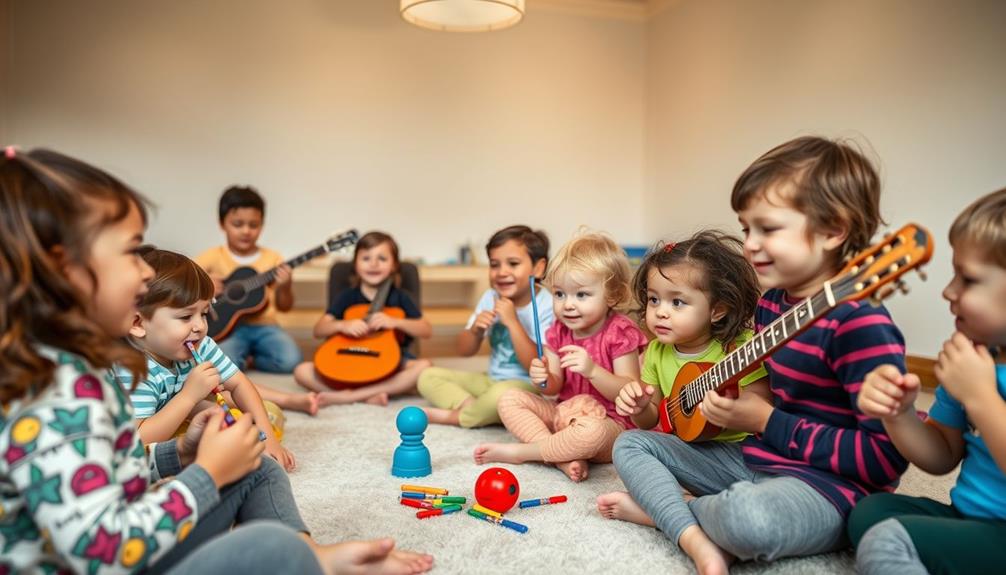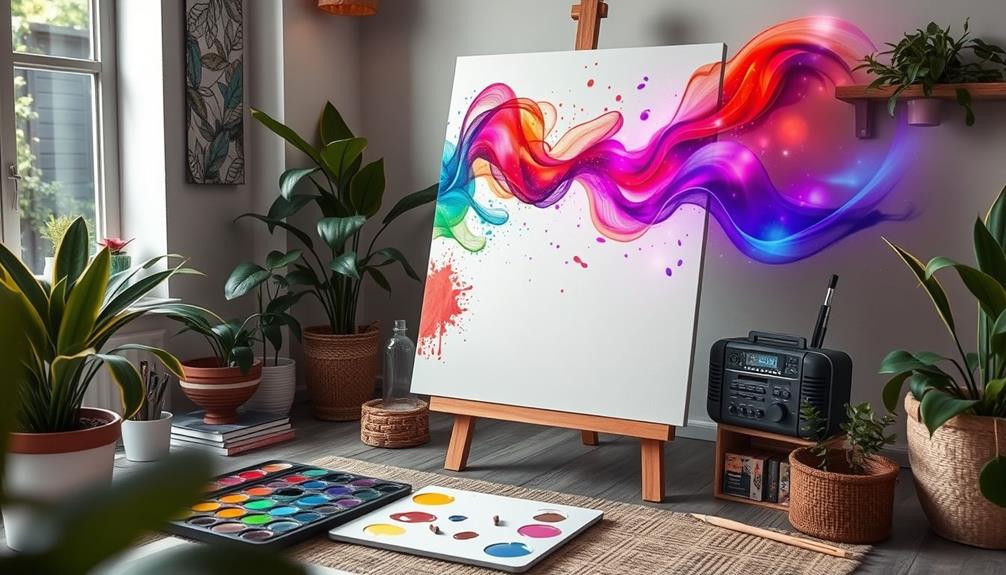Music has a remarkable ability to release memories and emotions. When you hear familiar tunes, they can transport you to significant moments in your past. This happens because music activates areas of your brain responsible for memory recall. For those facing memory challenges, like Alzheimer's patients, well-known songs often trigger long-forgotten memories. Emotionally charged music enhances this process, making memories more vivid. Plus, music therapy improves cognitive function and emotional well-being. If you want to explore how to harness music's power for your own memories, there's so much more to discover about this fascinating connection.
Key Takeaways
- Familiar songs activate brain regions like the hippocampus, enhancing memory retrieval and recall.
- Emotionally charged music improves memory retention and increases the likelihood of recalling specific memories.
- Music therapy effectively aids memory-impaired individuals, helping them access cherished memories through personalized playlists.
- Implicit and procedural memory related to music remains intact, even when other memory types decline, allowing for recall without conscious thought.
- Nostalgic music fosters emotional connections and strengthens relationships, promoting storytelling and bonding during family gatherings.
Music's Impact on Memory
When you hear a familiar song, it can instantly transport you back to a specific moment in your life, illustrating how music serves as a powerful cue for memory recall. This connection between music and memory isn't just anecdotal; research shows that emotionally charged music enhances your ability to remember.
Additionally, similar to the processes observed in quorum sensing in bacteria, where communication plays a vital role in coordinating behaviors, music facilitates a unique interaction between emotional experience and memory retention. When you feel strong emotions tied to a particular song, you're more likely to recall specific events associated with it.
Engaging with music activates key brain regions, like the hippocampus and prefrontal cortex, which play important roles in retrieving and forming memories. This is especially significant for individuals with memory impairments, such as Alzheimer's patients, who often struggle with recent memories but can vividly recall long-term ones triggered by familiar tunes.
In the context of music therapy, clinicians can harness these effects to help you access cherished memories or even improve cognitive function. By tapping into the strong emotional responses elicited by music, therapy sessions can create a pathway to deeper memory recall, making music an invaluable tool in understanding your past and enhancing your overall well-being.
Therapeutic Applications of Music
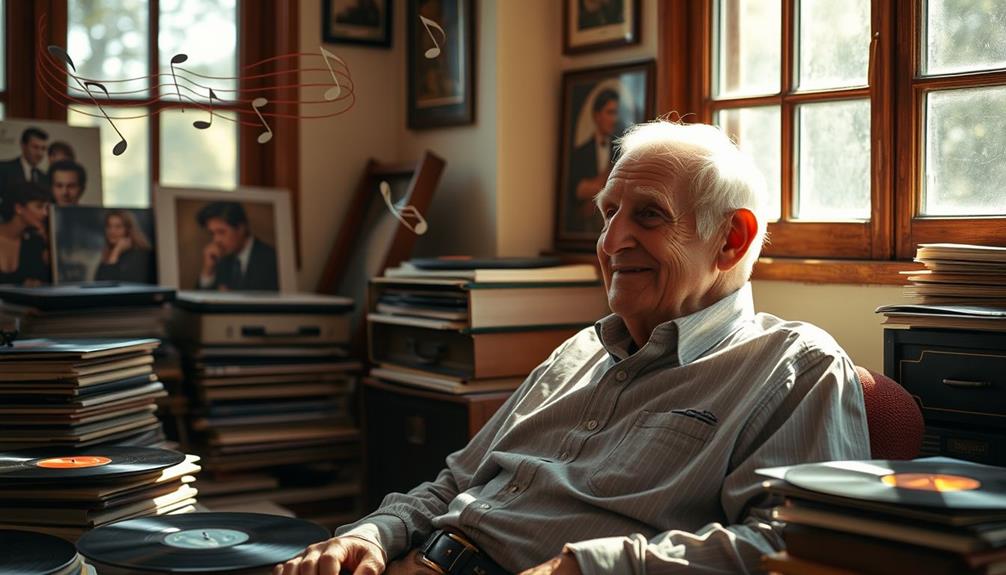
Harnessing the emotional power of music, therapists are finding innovative ways to enhance mental health and cognitive function. Music therapy has become an essential tool in treating conditions like dementia, anxiety, and depression. Through structured musical engagement, it promotes emotional well-being and supports memory retrieval.
Additionally, similar to somatic therapy techniques, music therapy encourages body awareness and emotional expression, further enriching the therapeutic experience.
Here are three key benefits of music therapy:
- Stress Reduction: Research shows that music can lower cortisol levels, alleviating stress and providing a soothing alternative to sedative medications.
- Memory Enhancement: Individualized playlists can evoke positive memories, improving the quality of life for patients with memory impairments by facilitating recall of long-forgotten experiences.
- Strengthening Connections: Engaging with music fosters stronger caregiver-patient relationships, creating a sense of normalcy and connection for those facing cognitive challenges.
Studies indicate that music therapy effectively aids memory retrieval for Alzheimer's patients, allowing them to access cherished memories through familiar songs.
Types of Memory Involved

Memory plays an essential role in how we experience and connect with music, especially in therapeutic settings. Different types of memory are involved, shaping our musical experiences in unique ways. For example, episodic memory allows us to recall specific events or experiences associated with a particular song, while procedural memory enables us to remember how to play an instrument or dance to a familiar tune. In therapeutic settings, music can be used to trigger positive memories or to help individuals process difficult emotions. This is why music for mindfulness, such as guided meditation or calming melodies, can be an effective tool for promoting relaxation and emotional healing.
Musical memory, which allows you to recognize and recall songs and melodies, can persist even when other types of memory decline. For instance, if you're familiar with dementia patients, you might notice they often struggle with episodic memory, which affects their ability to recall specific personal experiences tied to music. Notably, studies have shown that pets, like cats, can also exhibit emotional connections tied to memories, similar to the way humans do when they hear familiar tunes or scents emotional attachment in cats.
Yet, despite these challenges, they can still play familiar tunes without conscious thought, thanks to implicit memory. This procedural memory allows individuals to perform music they've practiced for years, highlighting how deeply ingrained musical experiences can be.
Even when the hippocampus, vital for episodic memory consolidation, is damaged, memories tied to music can remain accessible. Alzheimer's patients frequently retain vivid recollections of childhood songs, demonstrating the enduring nature of musical memory.
This connection between music and memory illustrates how different memory types work together, providing a powerful tool for therapeutic interventions.
Generational and Cultural Significance
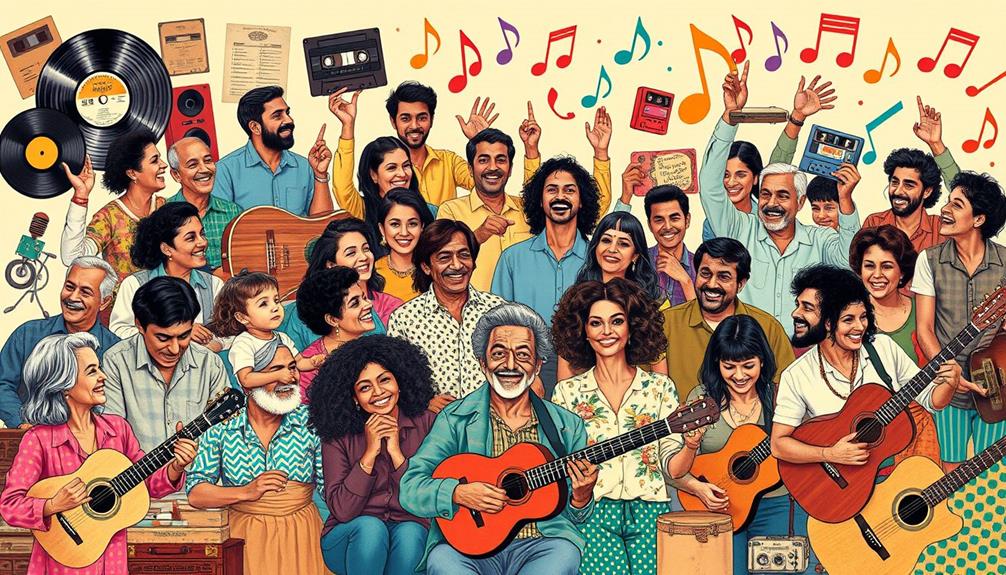
Music holds a unique power to connect generations, with studies showing that younger individuals (ages 18-34) often experience involuntary memories tied to contemporary songs, while older adults (ages 60-77) frequently feel nostalgia for the music of their youth.
This generational divide illustrates music's cultural significance, bridging gaps and fostering connections, similar to how relationships thrive on shared experiences and communication.
Consider how music creates memories through:
- Shared Experiences: Family gatherings often feature songs that spark conversations about past events, enhancing storytelling and bonding.
- Emotional Resonance: Familiar tunes can evoke powerful emotions, reminding you of significant milestones like weddings or graduations.
- Cultural Heritage: Songs passed down through generations keep traditions alive, encapsulating the essence of shared history and identity.
These elements highlight how music serves as a nostalgic reminder of cultural heritage, creating lasting emotional bonds across generations.
The memories you associate with specific songs not only enrich your personal narrative but also weave a collective memory that strengthens family ties.
Ultimately, music's role in evoking smiles and shared understanding makes it an essential part of our cultural fabric, reminding us of who we're and where we come from.
Research Studies on Music and Memory
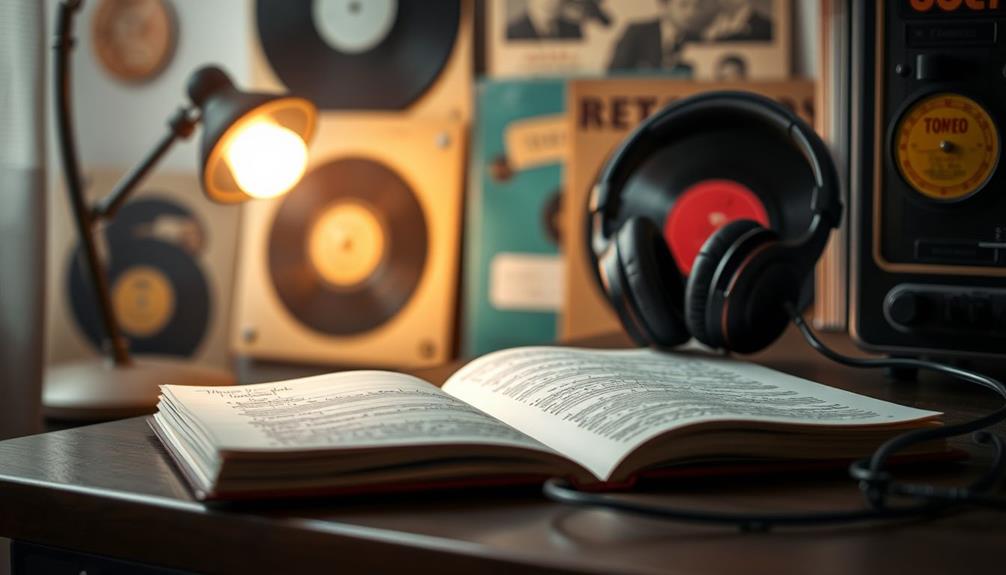
Research has consistently shown that auditory experiences, particularly through music, can greatly enhance recall and emotional engagement with memories. One compelling study with 30 participants indicated that when they listened to music from their adolescence, they recalled more detailed autobiographical memories compared to simply viewing photos of famous figures. This highlights how music can improve memory recall by tapping into personal emotional connections.
Notably, similar to the way timeless furniture styles evoke nostalgia through their craftsmanship, music can trigger strong feelings tied to our past.
Another project involving 39 young adults and 39 older adults revealed that music prompted more significant autobiographical memories than food experiences. These findings suggest that music serves as a powerful cue for recalling past events, with its emotional resonance enhancing memory retention.
Moreover, research has demonstrated that music can evoke vivid flashbulb memories, showcasing its capacity to trigger strong emotional responses tied to past experiences. The scientific basis for this lies in music's engagement with the brain's neural networks, particularly the hippocampus and prefrontal cortex.
This interaction aids not only in retrieving stored memories but also in forming new ones, making music a valuable tool for enhancing your memory.
Frequently Asked Questions
How Does Music Help Recall Memories?
Music helps you recall memories by activating emotional brain areas, creating powerful cues that trigger vivid recollections. Familiar tunes can evoke strong autobiographical memories, often more effectively than other stimuli like visual or verbal cues.
Why Do Dementia Patients Remember Music?
Dementia patients remember music because it stimulates their emotions and engages procedural memory. Familiar tunes trigger strong feelings, often leading to vivid recollections of past experiences, helping them connect with loved ones and improve their mood.
Why Does Music Cause Memories to Flood Back?
When melodies dance in the air, memories rush in like a tide. You've experienced how familiar tunes awaken vivid recollections, bridging time and emotion, connecting you to moments that once slipped through the cracks of your mind.
Does Music Improve Working Memory?
Yes, music can improve your working memory. When you listen to certain types of music, especially those you enjoy, it enhances your focus and retention, helping you perform better on tasks that require concentration.
Conclusion
As you listen to a familiar tune, a flood of memories rushes in—faces, places, moments long forgotten. Can you feel the warmth of those experiences wrapping around you? Music isn't just sound; it's a powerful key that opens the vault of your mind. Whether it's a soothing melody that calms your thoughts or an upbeat rhythm that sparks joy, the connection between music and memory is profound. What memories await you in your next playlist?

